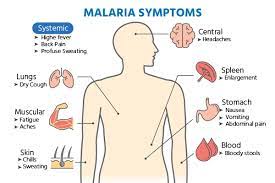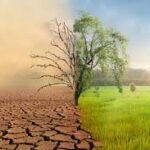A Looming Public Health Crisis: Climate Change and Malaria

Climate change is no longer a distant threat—it is a present reality reshaping health outcomes across Africa. Rising temperatures, shifting rainfall patterns, and extreme weather events are creating the perfect breeding ground for mosquitoes, the main carriers of malaria. With Africa already shouldering over 90% of global malaria cases (WHO), climate change is intensifying the crisis, putting more communities at risk.
How Climate Change Fuels Malaria
The malaria parasite and its carrier, the Anopheles mosquito, are highly sensitive to environmental conditions. Climate change amplifies malaria transmission in several ways:
-
Warmer Temperatures – Shorten the parasite’s development cycle inside mosquitoes, making them infectious faster.
-
Changing Rainfall Patterns – Create more stagnant water pools, ideal for mosquito breeding.
-
Rising Altitudes – Regions once too cold for malaria, like the East African highlands, are now vulnerable.
-
Extreme Flooding – Displaces communities and increases mosquito exposure.
In short, climate change is pushing malaria into new regions and populations, including areas that historically had little or no malaria risk.
Case Study: East Africa’s Highland Threat
For decades, highland regions in Kenya, Ethiopia, and Uganda were considered safe from malaria due to cooler temperatures. But recent studies show malaria cases are climbing in these regions as average temperatures rise. This means millions of people with little immunity are now vulnerable, increasing the risk of severe outbreaks.
Urbanization and Climate-Driven Malaria
Climate change is also intensifying malaria risk in African cities. Rapid urbanization, poor drainage, and extreme rainfall events create breeding grounds for mosquitoes. Cities like Lagos, Nairobi, and Kinshasa are now experiencing urban malaria, which was once considered rare.
Economic and Social Impacts
The climate-driven malaria surge carries enormous costs:
-
Health systems strain – Increased hospitalizations overwhelm already limited facilities.
-
Loss of productivity – Malaria keeps children out of school and adults out of work.
-
Economic drain – Africa loses billions of dollars annually to malaria-related healthcare and lost wages (CDC).
If climate change continues unchecked, malaria will not only remain a health issue but also a barrier to Africa’s economic development.
Solutions: Building Climate-Resilient Malaria Control

Africa needs urgent action to adapt its malaria response to climate change. Key strategies include:
-
Early Warning Systems – Using AI and satellite data to predict outbreaks based on climate trends.
-
Climate-Smart Vector Control – Expanding insecticide-treated nets and indoor spraying in newly affected areas.
-
Green Infrastructure – Improving urban drainage and reducing stagnant water to curb mosquito breeding.
-
Research and Innovation – Developing climate-resilient malaria vaccines and medicines.
-
Regional Cooperation – Cross-border malaria control programs to tackle spread in migratory populations.
Role of Governments and Communities
Governments must integrate malaria control into climate adaptation policies. Community education is equally vital—families need to understand how local climate shifts increase malaria risks and what preventive actions they can take.
The Way Forward
If Africa fails to address climate-driven malaria, millions of new cases could emerge in the coming decades. But with proactive strategies, international funding, and community engagement, Africa can mitigate the impact. Climate change is here to stay—but malaria doesn’t have to be.
Conclusion
Climate change is rewriting the story of malaria in Africa. From highlands to urban centers, new populations are at risk. However, with innovative solutions, strong political will, and community-driven prevention, Africa can stay ahead of the curve.
At HubPharm Africa, we are committed to supporting communities with affordable medicines, health education, and AI-powered health tools that can help predict and manage climate-related health risks. Together, we can fight malaria in a warming world.
Written by Fawzi Rufai, Medically Reviewed by Sesan Kareem



